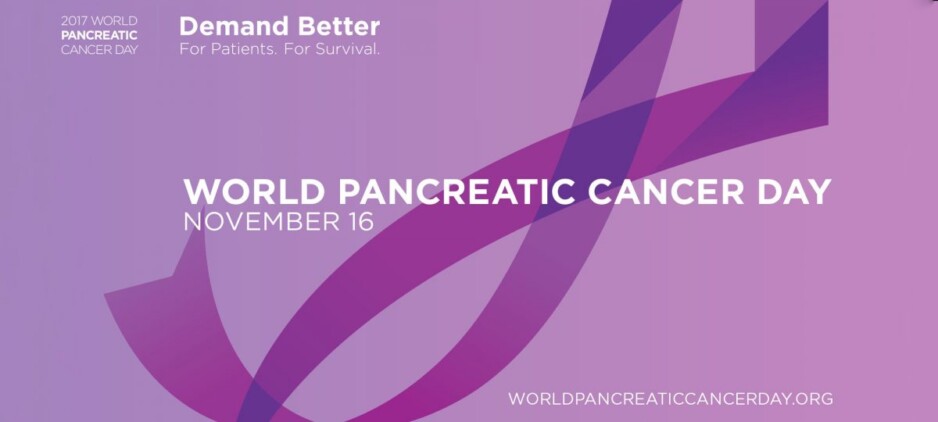Introduction
Pancreatic Cancer Day is an annual awareness campaign observed on November 19th to raise awareness about pancreatic cancer and its impact on individuals and their families. This day serves as a reminder for everyone to educate themselves about the signs, symptoms, and risk factors of pancreatic cancer, as early detection is crucial for effective treatment.
What is Pancreatic Cancer Day
Pancreatic Cancer Day is a global initiative that aims to increase awareness about pancreatic cancer, provide support for those affected by the disease, and advocate for better research and funding for its prevention and treatment. It is an opportunity for individuals, organizations, and communities to come together to raise awareness, share stories, and honor those who have been affected by pancreatic cancer.
The significance and purpose of Pancreatic Cancer Day
Pancreatic Cancer Day holds immense significance as it brings attention to an often overlooked and deadly disease. It aims to shed light on the challenges faced by individuals living with pancreatic cancer, and the urgent need for advancements in early detection methods, treatment options, and support services. Through increased awareness, fundraising efforts, and advocacy, Pancreatic Cancer Day strives to make a positive impact in the fight against this devastating illness.
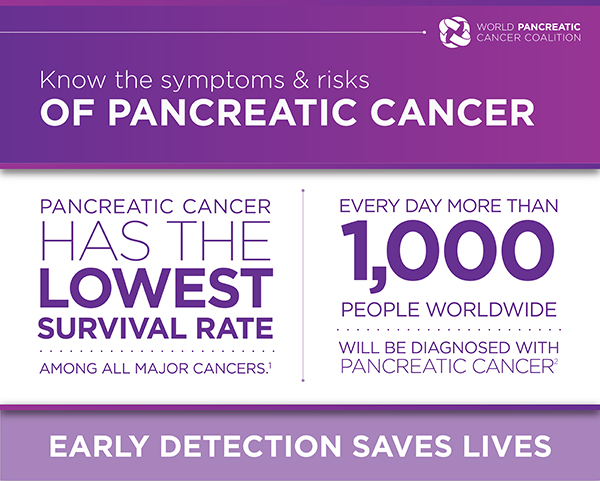
Understanding Pancreatic Cancer
Overview and facts about pancreatic cancer
Pancreatic cancer is a type of cancer that affects the pancreas, an organ located in the abdomen. It occurs when abnormal cells form in the tissues of the pancreas and rapidly multiply. Pancreatic cancer is known for its aggressive nature and is often diagnosed in advanced stages, making it difficult to treat. Here are some key facts about pancreatic cancer:
- Pancreatic cancer is the seventh leading cause of cancer-related deaths worldwide.
- It has a low survival rate, with only about 10% of patients surviving for 5 years after diagnosis.
- The symptoms of pancreatic cancer can be vague and often go unnoticed until the disease has progressed.
- Risk factors for pancreatic cancer include smoking, obesity, family history, age (usually over 45), and certain genetic conditions.
- Early detection of pancreatic cancer is challenging, which is why spreading awareness about the disease is crucial.
Risk factors and causes of pancreatic cancer
Several factors can increase the risk of developing pancreatic cancer. These include:
- Smoking: Cigarette smoking is the most significant risk factor for pancreatic cancer, accounting for approximately 30% of cases.
- Obesity: Being overweight or obese increases the risk of developing pancreatic cancer.
- Family history: Having a close relative (such as a parent or sibling) with pancreatic cancer increases the chances of developing the disease.
- Age: Pancreatic cancer is more common in individuals over the age of 45.
- Chronic pancreatitis: Long-term inflammation of the pancreas can increase the risk of developing pancreatic cancer.
While the exact causes of pancreatic cancer are unknown, researchers believe that a combination of genetic and environmental factors contribute to its development. It is crucial to be aware of these risk factors and take appropriate measures to reduce the chances of developing pancreatic cancer.

Early Detection and Diagnosis
Importance of early detection and diagnosis
Early detection and diagnosis of pancreatic cancer are crucial for improving patient outcomes and increasing treatment options. Pancreatic cancer is often diagnosed in advanced stages due to its vague symptoms and lack of specific early screening tests. By detecting the cancer early, doctors can implement aggressive treatment strategies and potentially increase the chances of survival. Regular check-ups, awareness of risk factors, and proactive communication with healthcare professionals are essential in ensuring timely detection and diagnosis of pancreatic cancer.
Symptoms and warning signs of pancreatic cancer
Pancreatic cancer symptoms can be challenging to detect, as they often resemble other less severe conditions. However, it is important to pay attention to persistent symptoms such as abdominal pain, jaundice, unexplained weight loss, loss of appetite, changes in bowel movements, and fatigue. If these symptoms persist or worsen, it is crucial to consult a healthcare professional for further evaluation and potential diagnostic tests. Early identification of these warning signs can lead to prompt diagnosis and appropriate treatment.
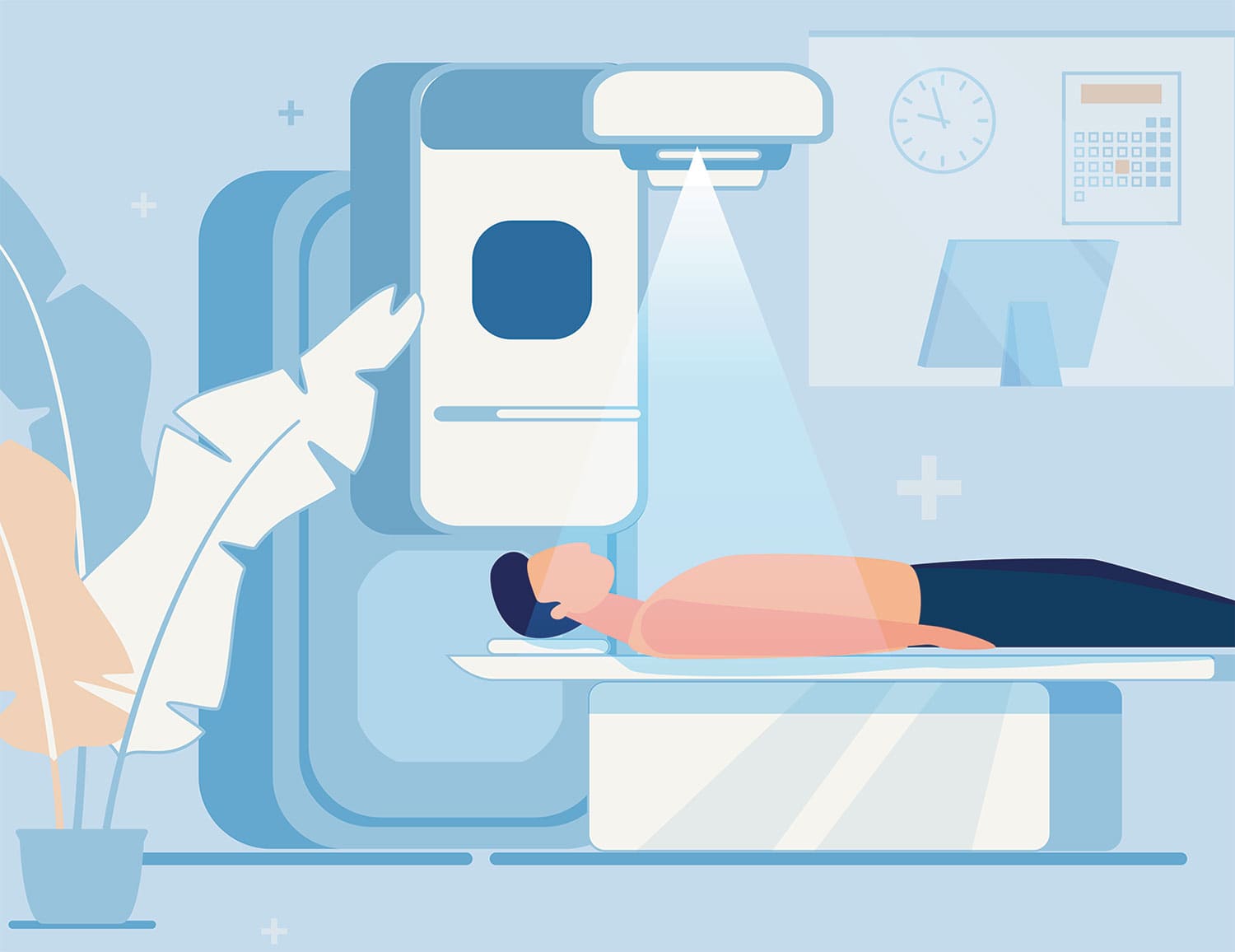
Treatment Options
When it comes to pancreatic cancer, early detection and diagnosis play a crucial role in improving patient outcomes. Once a diagnosis is confirmed, there are various treatment options available that can help in fighting cancer and improving the quality of life for patients. The three primary treatment options for pancreatic cancer are surgery, chemotherapy, and radiation therapy.
Surgery: Surgery plays a vital role in treating pancreatic cancer, especially in the early stages. It involves the removal of the tumor and potentially surrounding tissues or organs. Depending on the location and extent of the cancer, different surgical techniques may be employed, including the Whipple procedure or distal pancreatectomy.
Chemotherapy: Chemotherapy is the use of drugs to kill cancer cells. It can be administered before surgery to shrink the tumor, after surgery to kill any remaining cancer cells, or as the primary treatment for advanced cases. Different chemotherapy drugs and combinations may be utilized, and treatment plans are tailored to each patient’s specific needs.
Radiation therapy: Radiation therapy uses high-energy beams to target and kill cancer cells. It can be used before or after surgery, in combination with chemotherapy, or as a standalone treatment option. Radiation therapy helps in destroying cancer cells while minimizing damage to healthy surrounding tissues.
There are also emerging advancements in pancreatic cancer treatment, such as targeted therapies and immunotherapy. These innovative approaches aim to specifically target cancer cells or boost the body’s immune system to fight against cancer. Clinical trials and ongoing research are paving the way for more effective and personalized treatment options.
It is important for patients to consult with their healthcare team to determine the most suitable treatment plan based on individual factors such as stage of cancer, overall health, and personal preferences. With advancements in treatment options, there is hope for improved outcomes and better quality of life for pancreatic cancer patients.

Support and Resources
Support groups and organizations for pancreatic cancer patients and their families
Dealing with pancreatic cancer can be emotionally and physically challenging for patients and their families. That’s why it is essential to seek support from organizations and support groups that specialize in pancreatic cancer. These groups provide a sense of community, understanding, and valuable resources to navigate through the difficult journey.
Some notable support groups and organizations include the Pancreatic Cancer Action Network (PanCAN), the Lustgarten Foundation, and the Pancreatic Cancer Support Group. These groups offer virtual and in-person support meetings, educational materials, webinars, and one-on-one counseling services. Connecting with others who have gone through similar experiences can provide comfort, advice, and a sense of hope.
Resources and services available for pancreatic cancer patients
Pancreatic cancer patients have access to a wide range of resources and services designed to assist them throughout their treatment journey. These resources include financial assistance programs, transportation services for medical appointments, and educational materials about the disease and treatment options.
Additionally, reputable websites such as the American Cancer Society and the National Cancer Institute provide comprehensive information about pancreatic cancer, including treatment guidelines, clinical trial databases, and helpful articles. Patients can also reach out to their healthcare team for guidance on additional resources specific to their needs.
Remember, it is crucial to take advantage of these support networks and resources to ensure that pancreatic cancer patients and their families receive the utmost care and support during this challenging time.

Pancreatic Cancer Research
Current research initiatives and breakthroughs in pancreatic cancer
Efforts to understand and combat pancreatic cancer are ongoing. Researchers and scientists are dedicated to finding new treatments, improving early detection methods, and enhancing overall patient care.
One current research initiative is focused on developing targeted therapies that specifically target cancer cells while sparing healthy cells. This approach aims to minimize side effects and improve the effectiveness of treatment. Another breakthrough involves the use of immunotherapy, which harnesses the body’s immune system to fight cancer cells. This promising therapy has shown positive results in certain cases of pancreatic cancer.
Importance of funding and supporting pancreatic cancer research
Funding and support are vital in advancing pancreatic cancer research. Donations and grants enable researchers to conduct clinical trials, acquire necessary equipment, and hire skilled professionals. These resources are critical in accelerating the development of new treatments and finding a cure for this devastating disease.
Supporting pancreatic cancer research also helps raise awareness about the disease and its impact on patients and their families. It promotes advocacy efforts, encourages collaborations among scientists, and provides hope for those affected by pancreatic cancer.
By investing in pancreatic cancer research, we can make significant strides in improving outcomes and ultimately discovering a cure for this challenging illness. Every contribution, big or small, brings us closer to a future where pancreatic cancer no longer steals lives prematurely.
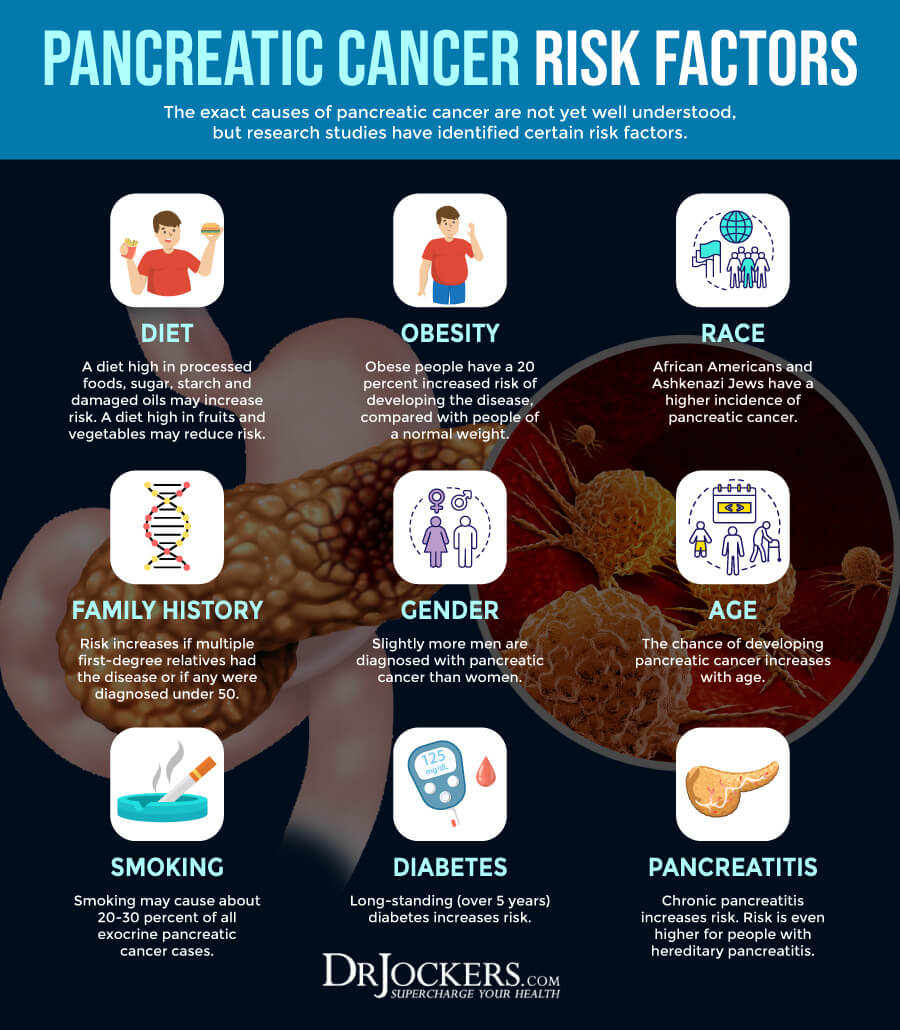
Pancreatic Cancer Prevention
Lifestyle choices and measures to reduce the risk of pancreatic cancer
Taking proactive steps towards preventing pancreatic cancer can significantly reduce the risk of developing this deadly disease. Here are some lifestyle choices and measures you can adopt to protect yourself:
- Quit smoking: Tobacco use is a known risk factor for pancreatic cancer. By quitting smoking, you can substantially lower your chances of developing the disease.
- Eat a healthy diet: Include plenty of fruits, vegetables, whole grains, and lean proteins in your daily meals. Limit your intake of processed foods, red meats, and sugary beverages.
- Maintain a healthy weight: Obesity is linked to an increased risk of pancreatic cancer. Focus on achieving and maintaining a healthy weight through regular exercise and a balanced diet.
- Limit alcohol consumption: Excessive alcohol consumption can elevate the risk of pancreatic cancer. If you choose to drink, do so in moderation.
Screening guidelines and preventive strategies
Early detection plays a crucial role in the successful treatment of pancreatic cancer. While there are currently no standard screening tests for the general population, certain individuals may benefit from regular screenings. These include those with a family history of pancreatic cancer or certain genetic conditions.
Additionally, individuals with precancerous pancreatic lesions may be identified through imaging tests such as CT scans or endoscopic ultrasounds. If diagnosed, immediate medical intervention can prevent the progression to pancreatic cancer.
It is also essential to stay informed about the latest research and advancements in pancreatic cancer prevention. Support organizations and initiatives that strive to raise awareness and fund research for improved preventive strategies. Together, we can make a difference in reducing the incidence of pancreatic cancer and saving lives.
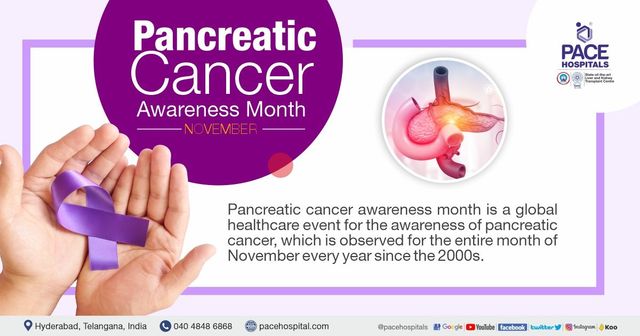
Spreading Awareness
How to get involved in Pancreatic Cancer Day
Pancreatic Cancer Day is a global initiative dedicated to raising awareness about pancreatic cancer, its risk factors, and prevention strategies. Getting involved in this important event is a meaningful way to contribute to the fight against this deadly disease. Here are some ways you can participate in Pancreatic Cancer Day:
- Host an event: Organize a fundraising event or awareness campaign in your community to educate others about pancreatic cancer and raise funds for research and support programs.
- Spread the word: Use your social media platforms and personal networks to share informative posts, statistics, and personal stories about pancreatic cancer. Encourage others to join the cause and support research efforts.
- Wear purple: Purple is the color associated with pancreatic cancer awareness. Show your support by wearing purple clothing or accessories on Pancreatic Cancer Day and encouraging others to do the same.
Raising awareness and supporting the cause
Raising awareness about pancreatic cancer is crucial for early detection and prevention. By supporting organizations and initiatives that focus on pancreatic cancer research, you can make a significant impact:
- Donate: Contribute to reputable organizations that are actively involved in pancreatic cancer research, patient support, and advocacy. Your donation can help fund life-saving research and provide vital resources to patients and their families.
- Volunteer: Offer your time and skills to volunteer with organizations that work towards raising awareness about pancreatic cancer. You can assist with events, fundraising activities, or even become an advocate for the cause.
- Participate in campaigns: Stay informed about awareness campaigns and initiatives related to pancreatic cancer prevention. Participate in activities such as walks, runs, or online challenges that directly support the cause.
By getting involved in Pancreatic Cancer Day and supporting awareness efforts, you can help make a difference in the fight against this devastating disease and bring hope to those affected by it. Together, we can spread awareness, improve early detection, and work towards finding a cure.

